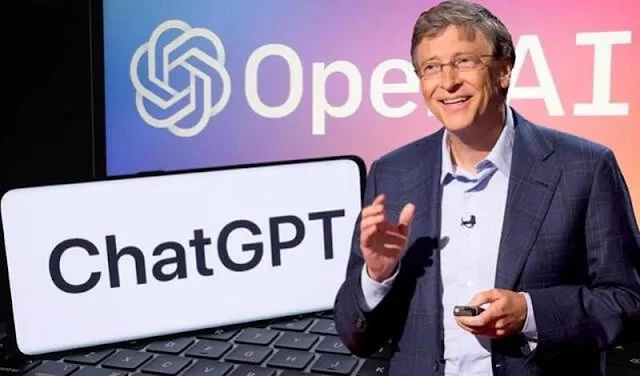Artificial Intelligence, or AI, has been a buzzword in the technology industry for a few years now. But what exactly is it, and what impact will it have on our lives? Bill Gates, the co-founder of Microsoft, has shared his thoughts on the subject in a recent essay titled "The Age of AI has begun". In this blog post, we will take a closer look at Gates' vision of the future and what it means for us.
Bill Gates Explains, What is AI?
In simple terms, AI is the ability of machines to perform tasks that normally require human intelligence, such as recognizing speech, making decisions, and learning. It involves the development of algorithms and computer programs that can analyze data, draw conclusions, and make predictions. AI is already being used in a variety of applications, from virtual assistants like Siri and Alexa to self-driving cars and facial recognition technology.
Bill Gates Explains, The Impact of AI
According to Gates, AI is as revolutionary as mobile phones and the Internet. He believes that it will transform every industry and every part of our lives, from healthcare and education to transportation and entertainment. AI has the potential to improve efficiency, accuracy, and productivity in many fields. For example, it could help doctors diagnose diseases more accurately, enable personalized education for students, and optimize traffic flow in cities.
However, AI also presents some challenges and risks. One of the biggest concerns is job displacement, as machines may be able to perform tasks that were previously done by humans. This could lead to unemployment and economic inequality. There are also ethical considerations, such as privacy concerns and the potential misuse of AI by governments or corporations.
Bill Gates' Vision of the Future
- Despite these challenges, Gates remains optimistic about the potential of AI. In his essay, he outlines several areas where he believes AI can have a positive impact:
- Health: AI could revolutionize healthcare by enabling early detection and personalized treatment of diseases. It could also help researchers develop new drugs and vaccines more quickly.
- Education: AI could provide personalized learning experiences for students and help teachers identify areas where students need more support.
- Agriculture: AI could improve crop yields and reduce waste by analyzing data on weather patterns, soil conditions, and plant growth.
- Energy: AI could help us transition to renewable energy sources by optimizing energy grids and predicting energy usage.
- Environment: AI could help us address climate change by analyzing data on carbon emissions and developing strategies for reducing them.
Conclusion
The Age of AI has begun, and its impact will be felt in every aspect of our lives. As Gates points out, AI has the potential to transform many industries and improve our quality of life. However, we must also be aware of the challenges and risks that AI presents, and work to address them proactively. By doing so, we can ensure that AI is used for the benefit of humanity and not to our detriment.

